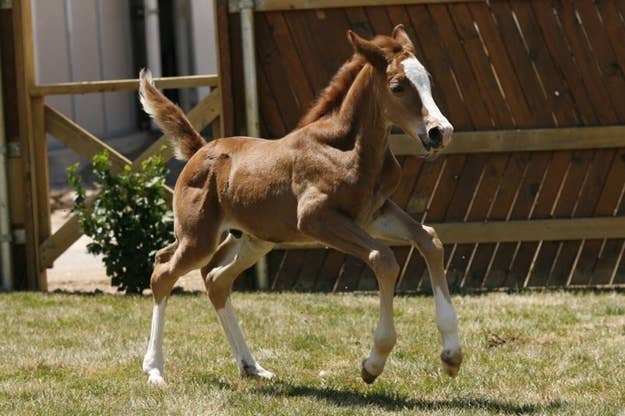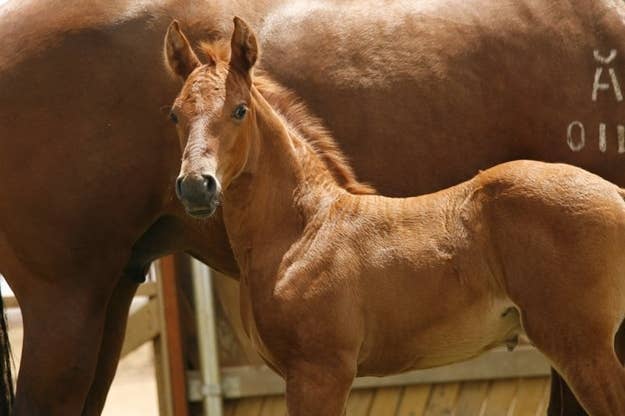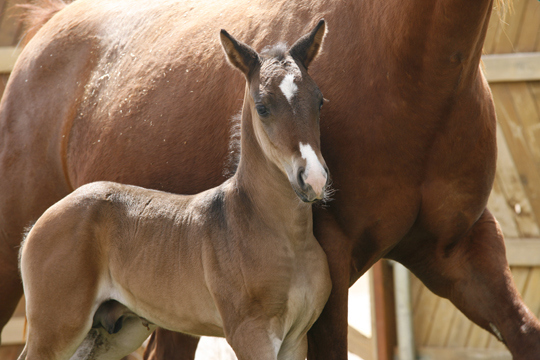
In 2009, Tailor Fit had a problem — or, more accurately, his owners did. He had a great lineage, two AQHA championships behind him and, under other circumstances, he would have had a lucrative string of stud fees ahead of him. But like most champion quarter horses, Tailor Fit was a gelding and couldn't breed — so his owners lost out on a wealth of stud fees and anyone who wanted to breed towards a better quarter horse was out of luck. Unless, of course, they were into cloning.
At the time, Blake Russell was three years into his tenure at Viagen, a livestock cloning company. He was also a racing fan, so when Tailor Fit caught his eye, he was able to collect a tissue sample and work up an exact clone. The resulting horse was christened Pure Tailor Fit, an ungelded replica of the original, ready to be replicated whenever the need might arise.
If you'd like your own Tailor Fit clone, they're available.

Russell's livestock cloning company is called Viagen, and in a given year, they clone as many as 50 horses, as well as hundreds of cattle and pigs. $150,000 will buy you a 60-day-old foal, healthy enough to be insurable and guaranteed to have the same good genes as its clone-parent. Cows are cheaper, around $20,000, thanks to more widely available birthing facilities and veterinary care.
Viagen uses the same nuclear transfer technique that produced the first cloned animal, Dolly, back in 1997 — although six years of work have allowed for a lot of refinements in practical areas like the development of tissue cultures and treatments for birthing surrogates. With medical cloning mired in ethics concerns, it's one of the few places the technology can develop.

Six years in, it's hard to say how this would affect horse racing. Most of the cloned foals are still too young to race competitively, which typically starts after two years of training, and it's difficult to say exactly how much of an edge they'll get from good genes. Still, it's tempting to imagine a Kentucky Derby in which every horse is sired by Secretariat. At the very least, championship horses will leave a much larger genetic footprint and the whole thoroughbred scene will gain a few steps.
At the moment, the biggest roadblocks are institutional. Thoroughbred organizations will only register foals that are bred with natural mating, so cloned animals can't compete in any of the major races. (Even artificial insemination is off-limits.) But Russell and others are hoping a steady supply of well-bred horses will change their minds, and there's reason to believe they're right. Just last month, the Fédération Equestre Internationale opened up international competition to clones and their descendants, which means Russell's brood is now eligible to compete in the Olympics. Their previous stance was that, "horse and rider are both acknowledged as athletes by the FEI. The cloning of either with a view to competing at international level would be unacceptable."
No word yet on cloning jockeys, but we assume it's just a matter of time.
